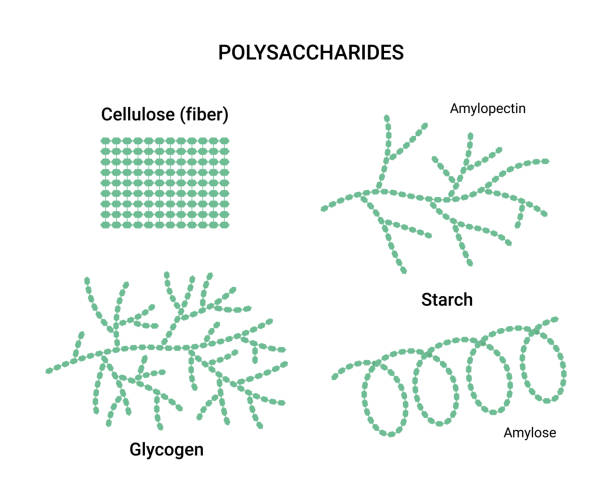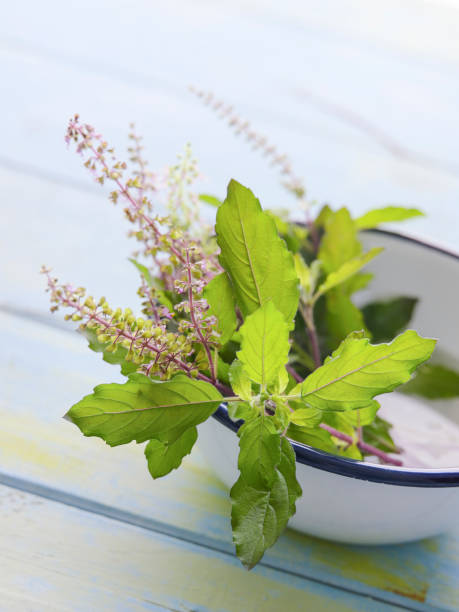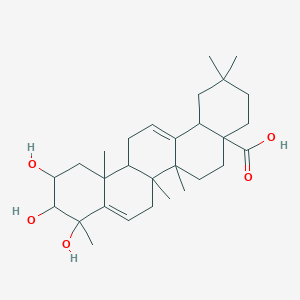
Adaptogens are increasingly recognized in modern nutrition for their potential to enhance wellness routines by promoting resilience to stress and improving overall health. These herbal supplements are classified as adaptogens due to their ability to help the body adapt to various stressors, both physical and psychological, thereby supporting homeostasis and enhancing physical and mental performance (Lee et al., 2016; Oliynyk & Oh, 2013).
At Bonne Sante, we recognize how adaptogens are transforming traditional health routines by offering natural solutions to enhance well-being. Let’s explore how adaptogens are reshaping our approach to nutrition and promoting holistic health.
What Are Adaptogens?
Adaptogens are natural substances, primarily herbs and roots, that help the body adapt to stress, restore balance (homeostasis), and enhance resilience. By targeting the adrenal system, adaptogens regulate hormones, support energy levels, and improve overall well-being. Unlike conventional stimulants, adaptogens work holistically to strengthen the body’s response to both physical and emotional stress.
Key Bioactive Components in Adaptogens
- Polysaccharides – Found in reishi and cordyceps, they boost immune function and promote cellular health.
- Triterpenoids – Present in ashwagandha and ginseng, they possess anti-inflammatory and cortisol-regulating properties.
- Flavonoids – Found in holy basil and rhodiola, they act as powerful antioxidants, protecting the body from oxidative stress.
- Saponins – Commonly present in ginseng and licorice root, saponins support adrenal health and hormonal balance.

How Adaptogens Are Transforming Modern Wellness
1. Stress Management and Cortisol Regulation
In today’s fast-paced life, chronic stress is a common issue. Adaptogens like ashwagandha and rhodiola rosea help regulate cortisol levels, the hormone responsible for stress responses. By modulating cortisol, these herbs reduce feelings of anxiety, fatigue, and mental fog, promoting a state of calm and balance.
2. Energy and Stamina Enhancement
Adaptogens such as ginseng and cordyceps offer a natural boost in energy without the jittery effects of caffeine. They enhance mitochondrial function—boosting energy production at the cellular level—and reduce feelings of burnout, making them excellent for combating fatigue.
3. Immune Support
Adaptogens like reishi and holy basil strengthen the immune system by enhancing white blood cell activity and reducing inflammation. They are especially useful during seasonal changes or periods of high stress when the immune system is most vulnerable.
4. Cognitive Function and Mental Clarity
Adaptogens like bacopa monnieri and ginkgo biloba are recognized for their neuroprotective effects. They enhance cognitive function, memory, and focus by increasing blood flow to the brain and reducing oxidative stress, helping you stay sharp and alert.
5. Hormonal Balance
Adaptogens such as maca root and schisandra berry are particularly beneficial for hormonal balance. They help manage PMS, menopause symptoms, and adrenal fatigue, supporting long-term endocrine health.
Scientific Backing: Why Adaptogens Work
Modern research highlights the adaptogenic properties of herbs like ashwagandha and ginseng:
Ginseng: Particularly Panax ginseng, it contains bioactive compounds known as ginsenosides, responsible for its anti-inflammatory, antioxidative, and immunomodulatory properties (Uluişik & Keskin, 2016; Liang et al., 2019). Research indicates that ginseng can improve immune function and reduce inflammation, making it beneficial for conditions such as ulcerative colitis and other gastrointestinal disorders (Wang et al., 2021; You, 2024). It has also been shown to enhance cognitive function and physical performance (Oliynyk & Oh, 2013; Lee et al., 2016).
Ashwagandha: Known for its ability to lower cortisol levels, ashwagandha effectively mitigates stress-related symptoms and enhances resilience against daily stressors (Shamli, 2024). Studies demonstrate its benefits in improving mood, sleep quality, and overall mental clarity.
Popular Adaptogens in Modern Nutrition
Ashwagandha (Withania somnifera)
Key Benefits:
- Reduces stress and anxiety by lowering cortisol levels
- Enhances mental clarity and cognitive function
- Boosts energy and endurance
- Supports hormonal balance, especially during periods of adrenal fatigue or PMS
How to Use:
- Can be consumed as a powder mixed in water, milk, or smoothies.
- Ashwagandha supplements (capsules, tablets) are also popular for convenience.
 Origin: Native to India and parts of the Middle East, Ashwagandha has been used for thousands of years in Ayurveda, the traditional Indian system of medicine. Bioactive Components: Withanolides, alkaloids, flavonoids
Origin: Native to India and parts of the Middle East, Ashwagandha has been used for thousands of years in Ayurveda, the traditional Indian system of medicine. Bioactive Components: Withanolides, alkaloids, flavonoids

Origin: Native to cold, mountainous regions of Europe and Asia, especially the Arctic. It has been used for centuries in traditional medicine in Russia and Scandinavia.
Bioactive Components: Rosavins, salidrosides
2. Rhodiola Rosea
Key Benefits:
- Improves mental clarity, reduces fatigue, and boosts energy
- Supports mood enhancement and reduces symptoms of anxiety and depression
- Enhances endurance and physical performance
How to Use:
- Rhodiola supplements (capsules or tinctures) are the most common form.
- Can also be brewed into teas or mixed into smoothies.
3. Reishi Mushroom (Ganoderma lucidum)
Key Benefits:
- Strengthens immune function and reduces inflammation
- Improves sleep quality and supports relaxation
- Enhances overall well-being and vitality.
How to Use:
- Reishi can be taken as a powder in hot water (as tea) or in supplement form (capsules or tinctures).
- Also found in mushroom-based extracts and functional foods.
 Origin: Native to East Asia, particularly in China and Japan, where it has been used in traditional medicine for over 2,000 years.
Origin: Native to East Asia, particularly in China and Japan, where it has been used in traditional medicine for over 2,000 years.
Bioactive Components: Polysaccharides, triterpenoids, ganoderic acids.

Origin: Native to Southeast Asia, particularly India, where it has been revered for thousands of years in Ayurvedic medicine.
Bioactive Components: Eugenol, flavonoids, ursolic acid
4. Holy Basil (Tulsi)
Key Benefits:
- Reduces stress and anxiety
- Supports respiratory health and boosts immunity
- Protects against oxidative stress and inflammation
How to Use:
- Brewed as tea, taken as capsules, or added to smoothies or recipes.
- Can also be used in traditional Ayurvedic preparations.
5. Ginseng (Panax ginseng)
Key Benefits:
- Boosts energy and physical endurance
- Supports immune health and hormonal balance
- Enhances cognitive function and mental clarity
How to Use:
- Commonly taken as capsules, powders, or brewed teas.
- Ginseng supplements are widely available in health stores.
 Origin: Grown primarily in East Asia (China, Korea, and Siberia) and North America. It has been used in traditional Chinese medicine for over 2,000 years.
Origin: Grown primarily in East Asia (China, Korea, and Siberia) and North America. It has been used in traditional Chinese medicine for over 2,000 years.
Bioactive Components: Ginsenosides, saponins

Origin: Found primarily in the high-altitude regions of Tibet and Nepal, cordyceps have been used in traditional Chinese medicine for centuries.
Bioactive Components: Cordycepin, adenosine
6. Cordyceps
Key Benefits:
- Increases energy, stamina, and endurance
- Supports oxygen utilization and respiratory health
- Enhances athletic performance and reduces fatigue
How to Use:
- Available in powder, capsules, or tinctures.
- Can be brewed into teas or added to smoothies for easy consumption.
How to Incorporate Adaptogens into Your Wellness Routine
- Smoothies and Juices: Add powdered forms of ashwagandha, ginseng, or rhodiola to your morning smoothie.
- Teas: Brew adaptogen-rich teas for a calming ritual.
- Capsules and Tinctures: Opt for supplements for convenience and consistency.
- Adaptogen-Infused Snacks: Look for energy bars and snacks enriched with adaptogenic herbs.
- Cooking: Integrate adaptogens into soups, stews, or even desserts for a nutrient boost.
- Ready-to-Drink Adaptogenic Beverages: Many modern wellness brands offer pre-made drinks infused with adaptogens, offering convenience without sacrificing health.



Benefits of Long-Term Adaptogen Use
- Enhanced Resilience to Stress
- Boosted Immune Functions and Reduced Inflammation
- Balanced Energy Levels without Stimulants
- Improved Hormonal Balance and Overall Vitality
Potential Side Effects and Precautions
While adaptogens are generally considered safe, individual responses can vary. Potential side effects include gastrointestinal discomfort or allergic reactions. Additionally, some adaptogens like Rhodiola rosea and Ashwagandha may interact with medications or be contraindicated during pregnancy or certain physiological states (Machín, 2023; Gerontakos et al., 2021). Consulting a healthcare professional is recommended before incorporating adaptogens into your diet, especially if you have pre-existing conditions or take other medications.
Choosing Quality Adaptogens: What to Look For
To reap maximum benefits, it’s crucial to select high-quality adaptogens:
Organic Certification: Ensures the herbs are free from harmful chemicals.
Third-Party Testing: Verifies potency and purity.
Reputable Brands: Choose trusted companies with transparent sourcing.
Final Thoughts
Adaptogens represent a promising area of modern nutrition, offering a range of health benefits that can help mitigate the effects of stress and improve overall well-being. By integrating these powerful herbs into your daily nutrition, you can enhance resilience, reduce stress, and achieve a balanced state of health.
The Bonnesante Approach to Adaptogens
At Bonnesante, we believe in a personalized approach to health. Our experts understand that each individual’s nutritional needs are unique. We incorporate adaptogens into tailored wellness plans, ensuring you get the most suitable solutions for your health goals. Whether you’re seeking stress relief, improved energy, or cognitive clarity, we guide you on how to safely and effectively use adaptogens to enhance your overall well-being.
Why Choose Bonne Sante?
Evidence-Based Recommendations
We rely on scientific research to provide trusted guidance on adaptogenic herbs.
Personalized Wellness Plans
Our experts tailor recommendations to match your unique health journey.
Safe and Effective Use
We ensure you understand potential interactions and contraindications, offering advice based on your health history
Embrace the Power of Adaptogens Today
Adaptogens are more than just a health trend—they represent a powerful way to achieve balance and resilience in today’s demanding world. Whether you’re looking to reduce stress, boost energy, or enhance cognitive function, adaptogens can unlock your full potential.
At Bonne Sante our personalized wellness solutions provide adaptogens in your health journey. Together, let’s harness the power of nature to achieve holistic well-being.
Reference
Al Shamli, A., Mourgan, F. H. A., Al-Yaaribi, A., & Hefny, N. E. D. A. (2024). Adaptogenic herbs as natural sources of sports performance enhancers. The Open Medicinal Chemistry Journal, 21, 1–18. https://doi.org/10.2174/0118741045309981240611110433
Gerontakos, S., Casteleijn, D., & Wardle, J. (2020). Clinician perspectives and understanding of the adaptogenic concept: A focus group study with naturopaths and Western herbalists. Integrative Medicine Research, 9(2), 100433. https://doi.org/10.1016/j.imr.2020.100433
Lee, H. W., Choi, J., Lee, Y. J., Kil, K. J., & Lee, M. S. (2016). Ginseng for managing menopausal women’s health: A systematic review of double-blind, randomized, placebo-controlled trials. Medicine, 95(38), e4914. https://doi.org/10.1097/MD.0000000000004914
Liang, J., Chen, L., Guo, Y.-H., Zhang, M., & Gao, Y. (2019). Simultaneous determination and analysis of major ginsenosides in wild American ginseng grown in Tennessee. Chemistry & Biodiversity, 16(7), e201900203. https://doi.org/10.1002/cbdv.201900203
Machín, R. P., Florido, M., Chirino-Godoy, R., & López-Rios, L. (2023). Adaptogenic botanicals with emphasis on Rhodiola rosea and Withania somnifera. European Journal of Medicinal Plants, 34(11), 20–39. https://doi.org/10.9734/ejmp/2023/v34i111168
Oliynyk, S., & Oh, S. (2013). Actoprotective effect of ginseng: Improving mental and physical performance. Journal of Ginseng Research, 37(2), 144–166. https://doi.org/10.1016/j.jgr.2013.04.002
Uluısık, D., & Keskin, E. (2016). Hepatoprotective effects of ginseng in rats fed cholesterol-rich diet. Brazilian Journal of Pharmaceutical Sciences, 44, e80887. https://doi.org/10.22456/1679-9216.80887
Wang, D., Shao, S., Zhang, Y., Zhao, D., & Wang, M. (2021). Insight into polysaccharides from Panax ginseng C. A. Meyer in improving intestinal inflammation: Modulating intestinal microbiota and autophagy. Frontiers in Immunology, 12, 683911. https://doi.org/10.3389/fimmu.2021.683911
You, M., & Xu, M. (2024). Ginseng oligopeptides improve the intestinal physiology and promote the antioxidant capacity of the gut-on-a-chip model. Nutrients, 16(6), 845. https://doi.org/10.3390/nu16060845

